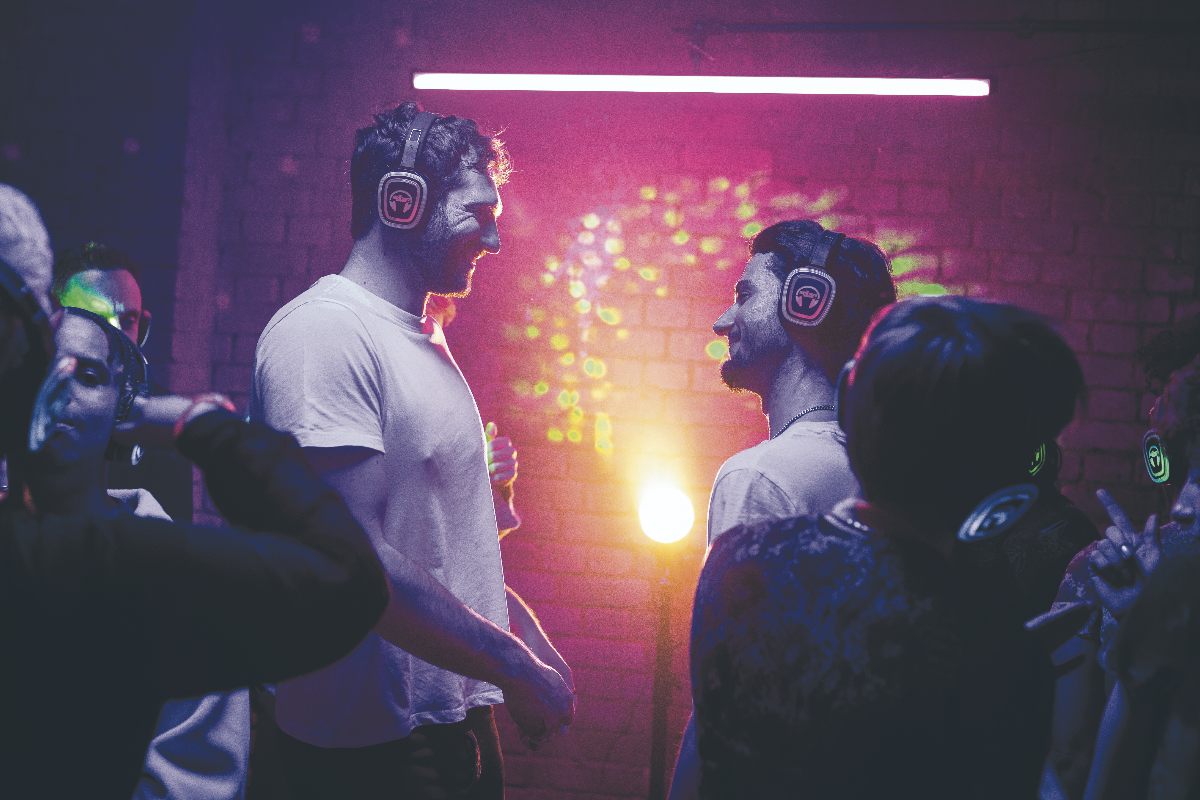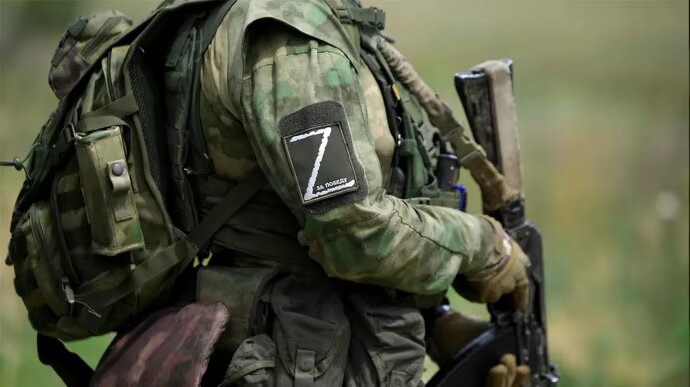This new LGBTQ film playing at BFI Flare 2025 ‘redefines’ the kiss
A Night Like This is one of dozens of new films premiering at BFI Flare festival on the Southbank this month It’s a difficult truth that the same writers, directors and actors tend to get work funded. It’s a safer option for investors to go with people who have public profiles and are believed to [...]


A Night Like This is one of dozens of new films premiering at BFI Flare festival on the Southbank this month
It’s a difficult truth that the same writers, directors and actors tend to get work funded. It’s a safer option for investors to go with people who have public profiles and are believed to be more likely to sell a film to the public and thus, turn a profit. But one of the leading new films shot and set in the UK, and screening at BFI Flare festival this month, was made by a writer and director duo who had never made a feature film before – something almost unheard of in the film industry.
“In terms of the funding and getting something made, that’s what makes it rare,” says Liam Calvert, the director of A Night Like This, the new romance movie about two men from different backgrounds who enjoy a spontaneous night together exploring the capital. “There’s something beautifully fresh and new about the hunger of everyone coming together,” adds actor Alexander Lincoln, who plays one of the leads, a wealthy entrepreneur called Oliver. “Maybe some ignorance helped,” says director Diego Scerrati. “Like, yeah we can do that!”
A Night Like This stars Harry Potter actor David Bradley alongside Lincoln and co-lead Jack Brett Anderson, who plays Lucas, a man whose lack of work as an actor is seriously impacting his mental health. Like Woody Allen’s Midnight in Paris, it depicts a poetic vision of a capital city, but avoids the major landmarks to reveal a truer, grittier London. Many scenes are shot around East End areas like Haggerston. Partly this was to save money on expensive locations, as the whole movie was shot on a budget of £200,000. “People told me this is not possible – and here we are,” says Scerrati. But Calvert was also passionate about showing the real London and not a glamorised version. “Everything is quite realistic, grey brown, realistic city colours.”
BFI Flare: dozens of new films premiere at the London festival on the Southbank
During their night out together, the men connect emotionally and physically, and share the type of spontaneous kiss you might actually have on a London street, rather than something played for the cameras. It’s still rare to see this type of LGBTQ moment on screen. Scerrati and Calvert say this is down to their style of realism. “What we need more is actual, real stories,” says Scerrati of queer storytelling. “We keep switching from Disney rom-com kind of films to the hypersexualised erotic films, but there is a gap between where I struggle to feel represented. I don’t see the reality between the two extremes. We rarely tell real stories – that’s the beauty. So many people who weren’t homosexual said they could see themselves in these two characters.”
“It’s not overly sexualised; almost you can desexualise things to make them more beautiful and more romantic,” says Brett Anderson. “I think that scene kind of redefines a kiss in its own beautiful way, and I think that’s something to be proud of.” He stops to think how to express how the film’s intimate moments go so much farther in the way they express closeness. “It’s like we just need to breathe into each other’s mouths or something – I’m breathing you, you’re breathing me.”
It’s true that this type of kiss is rare: while Heartstopper is an essential dose of young LGBTQ love, fans have long joked that the two leading actors, both at Sixth Form in the story, would have probably been doing far more than hugging each other when they went to their bedrooms as it depicts on the show. And at the other end of the scale, the trope of aggression within queer male sex has long been recognised.
The two meet in a bar before escaping into the capital’s labyrinth of backstreets, which work as a metaphor for exploration and opportunity. You worry whether Lucas might have made it through the night if it hadn’t been for his meeting with Oliver, but Oliver has his own set of demons too. Their relationship is a way into the conversations about isolation and loneliness in the capital. “It was one big therapy session,” says Brett Anderson of the shoot, which took place during winter of 2024. “Having to be in a depressed state for a period of time, it was like, this reminds me why I never want to be [depressed].”
For Lincoln, the night the two men shared reminded him of the way we all shape-shift depending on who we’re around – becoming altered versions of ourselves. “The idea of the mask. There’s always an aspect of it. It’s the code switching, it’s the phone voice.” Their connection allowed his character Oliver “to be the truest version of himself. This brokenness they see in each other – ‘I can be vulnerable with you, you can be vulnerable with me. I see you, you see me.’”
Scerrati was keen to keep their connection ambiguous. That was how it felt exciting and true. “Why do we need to define it? Is it love? Of course there is attraction. At the end it doesn’t really matter. As soon as you define something you respond to a set of boundaries.”
The film premieres at the BFI Flare festival this month alongside dozens of other new feature films from the UK and worldwide. Speaking from the British Film Institute the week the festival launches, the quintet fizz with excitement about the premiere that almost didn’t happen. “There are a lot of talented people out there who do not get an opportunity because of how the industry is shaped,” says Scerrati. “I was in a screenwriting class with 20 talented writers and so far I’m the only one who’s actually managed to do a film, which is a bit sad. I have to say I received a lot of ‘nos’ based on the fact that neither Liam or I are known in the industry. There is a lot of mistrust.” “There are so many films in development for years and years and just never manage to get made,” adds Lincoln.
It makes A Night Like This a moment to welcome in a new breed of British talent.
BFI Flare: London LGBTQIA+ Film Festi- val is at BFI Southbank from 19-30 March. Tickets are available via bfi.org.uk/flare. Check the website at 10am daily for extra tickets released on the day of screenings
Three films to book at Flare festival this month
The Wedding Banquet
The film playing on the opening night of the festival is a comedy called The Wedding Banquet. It stars Academy Award nominee Lily Gladstone from Killers of the Flower Moon. It is a rom-com about family and forgiveness. A reboot of Ang Lee’s original film of the same name, released in 1993, and is already generating lots of buzz. Screenings take place on Thursday 20 March at 15:15 BFI Southbank, NFT1 and on Sunday 30 March at 12:10 BFI Southbank, NFT1
Queens of Drama
Stan culture is the term that sums up the culture of fandom – how for every famous singer or actor, there’s a crowd of ‘stans’ who obsessively follow their work. This movie follows the relationship between one pop princess and a punk icon, two singers who originally met as competitors in a TV singing contest. Screenings take place Friday 21 March at 20:30 at BFI Southbank, NFT1 and on Wednesday 26 March at 15:00 at BFI Southbank, NFT1
Four Mothers
This is the sort of comedy you just want to watch again and again. It follows one loving son who somehow ends up looking after four demanding mothers. Set in Ireland, this is a loving ode to all types of families, and the unconventional ways we cope. Screenings take place on Friday 28 March at 15:30 BFI Southbank, NFT1 and on Sunday 30 March at 14:50 BFI Southbank, NFT2



